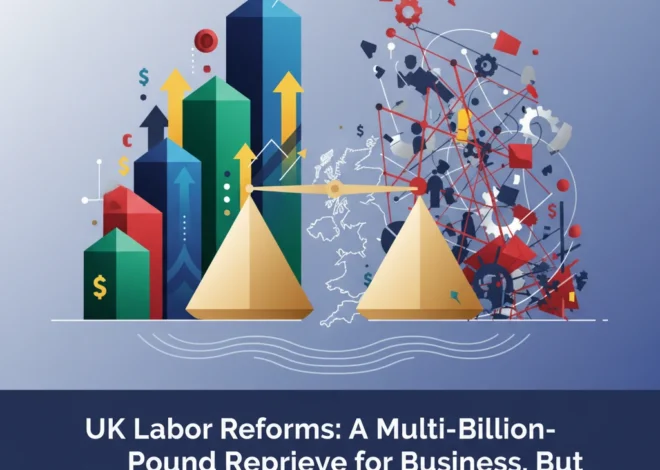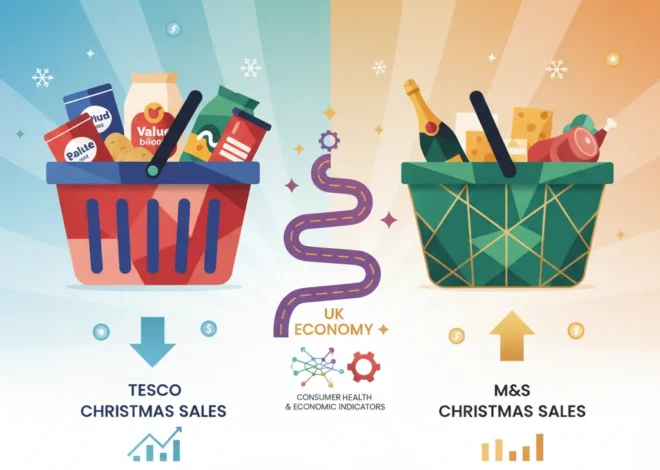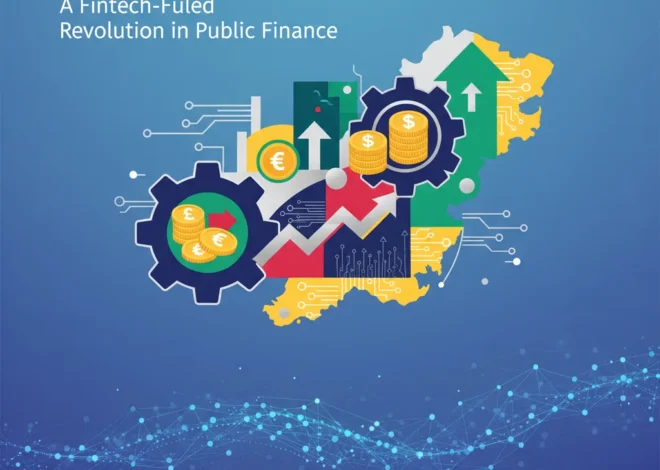
Beyond the Dealmaker: Why the “Great Man” Myth Is a Dangerous Trap for Modern Investors
In the grand theater of history, we are often drawn to the towering figures on stage. We speak of Napoleon’s genius, Churchill’s resolve, and Caesar’s ambition. This narrative, that history is forged by the will of extraordinary individuals, is known as the “Great Man” theory. It’s a compelling, simple story. But in the hyper-connected, deeply complex world of 21st-century global finance and trade, is it a story that still holds true? Or is it a dangerously misleading simplification that could cost investors and business leaders dearly?
A recent letter in the Financial Times by Professor Tjaco T van den Hout of the Riga Graduate School of Law elegantly dismisses this 19th-century idea in the context of modern trade diplomacy. He argues that focusing on figureheads like U.S. Trade Representative Katherine Tai or the EU’s Valdis Dombrovskis misses the vast, intricate machinery operating just behind the curtain. This insight is more than an academic curiosity; it’s a critical lens through which anyone involved in the global economy must view the world. Clinging to the “Great Man” myth doesn’t just misread history—it misreads the market.
This article will deconstruct this outdated theory, reveal the complex reality of modern economic statecraft, and explore the profound implications for investing, trading, and corporate strategy in an era defined by systems, not saviors.
The Allure and Fallacy of the “Great Man”
First, let’s understand the theory itself. Popularized by the Scottish historian Thomas Carlyle in the 1840s, the “Great Man” theory posits that the history of the world is but the biography of great men. Carlyle believed that influential heroes, prophets, and leaders, through their personal charisma, intelligence, and political will, were the decisive force in shaping historical events. It’s a top-down view of history that gives agency and credit (or blame) to a select few.
For centuries, this was the dominant way history was taught. It’s an intuitively appealing narrative. It simplifies complex events into a story of individual triumph and failure. Yet, from the mid-20th century onwards, historians and social scientists began to challenge this perspective. They argued that “great men” are often products of their time, shaped by vast, underlying currents—social movements, technological shifts, and economic pressures. As Leo Tolstoy famously countered in War and Peace, kings and generals are but “history’s slaves,” riding waves they did not create.
Nowhere is this shift in understanding more critical than in the realm of modern international trade and finance.
Bismarck's Ghost: Why 19th-Century Russian Strategy Haunts Today's Global Economy
The Hidden Iceberg: The Reality of Modern Trade Negotiations
While the media loves to frame trade disputes as a personal duel between two powerful negotiators, the reality is far more institutional and complex. As Professor van den Hout points out, a trade deal is not the product of a single brilliant mind in a smoke-filled room. It is the culmination of thousands of hours of work by a veritable army of specialists.
Imagine the process of negotiating a single chapter of a trade agreement—for instance, on digital services or financial technology regulations. The lead negotiator is merely the tip of the iceberg. Beneath the surface lies a sprawling support structure:
- Economists and Data Analysts: They model the potential impacts of tariff changes on hundreds of industries, calculating effects on GDP, employment, and the stock market.
- Legal Teams: Squads of lawyers scrutinize every clause, ensuring compliance with international law, such as the rules of the World Trade Organization (WTO), and domestic legislation.
- Industry Liaisons: Diplomats and civil servants conduct endless consultations with corporations, industry associations, labor unions, and NGOs to understand their “red lines” and priorities.
- Policy Experts: Specialists in everything from agriculture to artificial intelligence provide the deep technical knowledge required to draft meaningful and enforceable rules.
To illustrate the difference between the myth and the reality, consider this comparison:
| The “Great Man” Myth | The Institutional Reality |
|---|---|
| History is driven by the will of a single, powerful leader. | Outcomes are shaped by complex systems, legal frameworks, and competing stakeholder interests. |
| A trade deal is won or lost based on the negotiator’s personal skill and charisma. | A deal is the result of meticulous data analysis, legal drafting, and political compromise by large teams. |
| Policy can change on a whim or a tweet. | Policy is constrained by domestic law, international treaties (e.g., WTO), and parliamentary approval. |
| Success is defined by a “win” for the individual negotiator. | Success is a carefully balanced outcome that satisfies enough domestic stakeholders to be ratified and implemented. |
This institutional process is deliberate, slow-moving, and designed to be resilient to the whims of any single individual. The final text of an agreement is not a work of singular genius but a painstakingly assembled mosaic of compromises, shaped by deep national interests and political realities.
Why This Matters: Implications for Investing, Finance, and Business Strategy
Misunderstanding this dynamic is not just an academic error; it has tangible financial consequences. Here’s why investors, traders, and business leaders must look beyond the “Great Man” headlines.
1. Navigating Market Volatility
The stock market often reacts viscerally to the pronouncements of powerful individuals. A single tweet about tariffs or a tough-talking press conference can send markets tumbling or soaring. This creates opportunities for short-term trading, but it can be a dangerous trap for long-term investors. While the headline noise is focused on the individual, the institutional “machine” continues its slow, methodical work in the background. A trade representative’s threat may be a negotiating tactic, while the underlying consensus-building process points to a much more moderate outcome. As a study on the impact of political tweets has shown, these announcements can increase market volatility significantly. The savvy investor learns to distinguish between the performance on stage and the script being written backstage.
2. Crafting Resilient Investment Theses
A long-term investment strategy built on the perceived intentions of a single leader is built on sand. A new election, a cabinet reshuffle, or a shift in political winds can change the figurehead overnight. A strategy built on understanding a country’s deep-seated economic interests, its legal and regulatory frameworks, and its long-term industrial policy is built on bedrock. For example, instead of asking, “What will Leader X do about fintech regulation?”, the more incisive question is, “What are the structural needs of this country’s banking and technology sectors, and how is the regulatory apparatus evolving to meet them?”
Beyond Your Morning Coffee: Decoding the Economic Ripple Effect of Trump's Tariff Reversal
3. The Rise of Data-Driven Geopolitical Analysis
The evolution of financial technology is providing new tools to cut through the noise. AI-powered platforms can now analyze thousands of sources—from obscure policy documents and parliamentary debates to shipping data and supply chain logistics—to build a more accurate picture of a nation’s trade policy. This quantitative approach is the ultimate antidote to the “Great Man” narrative. It trusts the data generated by the entire system, not the rhetoric of the person at the top. Similarly, emerging technologies like blockchain promise to make supply chains and trade finance more transparent, embedding trust in the process itself rather than in individual intermediaries.
4. Effective Corporate Lobbying and Risk Management
For business leaders, understanding the institutional reality is crucial for effective advocacy and risk management. Focusing all lobbying efforts on the chief negotiator is a common mistake. The real influencers may be the chair of a key parliamentary committee, the head of a powerful industry group, or the senior civil servants drafting the technical annexes. A comprehensive risk model must account for the entire political and bureaucratic ecosystem, as a deal blessed by the “Great Man” can still be derailed by a thousand smaller cuts during the ratification and implementation process.
The Future of Economic Statecraft: Systems Over Saviors
The world of international economics is becoming more, not less, complex. The critical negotiations of the future won’t just be about tariffs on steel or soybeans. They will be about the foundational rules of the 21st-century economy: data flows, artificial intelligence ethics, carbon border taxes, and the regulation of digital currencies.
These issues are far too technical and multifaceted to be resolved by the gut instinct of a single leader. They will require the deep, collaborative expertise of technologists, scientists, lawyers, and economists. The systems, not the individuals, will dictate the outcomes.
The Great Bitcoin Gamble: Is MicroStrategy's Michael Saylor a Visionary or a Zealot?
In conclusion, while the stories of great leaders will always captivate us, the “Great Man” theory is an obsolete and hazardous lens for analyzing our modern global economy. The forces shaping international trade and finance are less like a lightning strike from a powerful individual and more like the inexorable, powerful movement of a glacier—slow, immensely powerful, and driven by systemic pressures. For investors, executives, and citizens alike, the key to navigating the future is to stop looking for the hero on the horse and start understanding the terrain on which we all stand.


